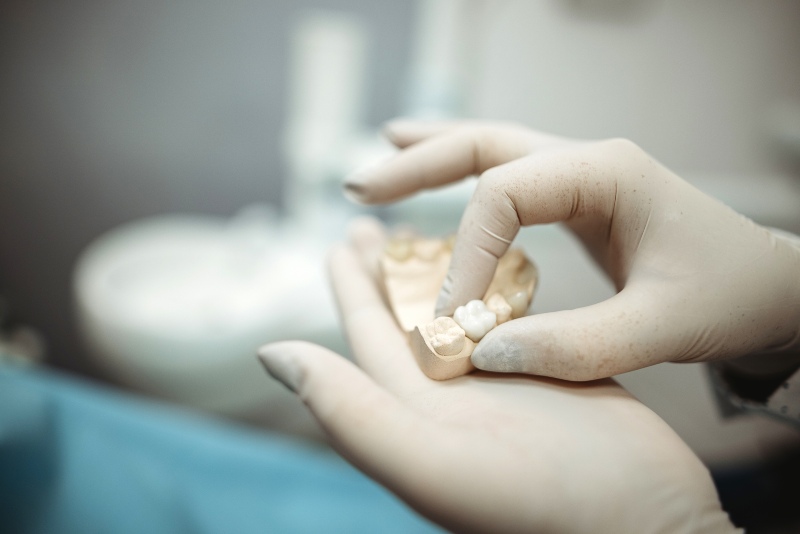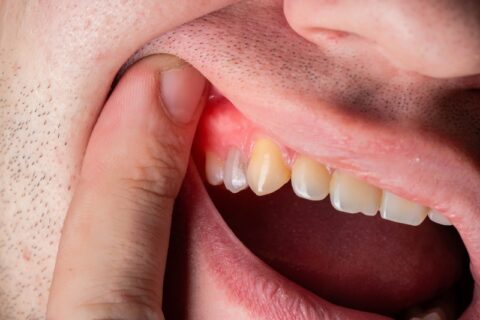How to Regenerate Bone Loss in Teeth
At Matthew J. Cavendish, DDS, we understand that bone loss in teeth can lead to serious dental problems, affecting not just your smile but also your overall oral health. If left untreated, it can result in tooth loss, changes in facial structure, and difficulty with eating or speaking. Fortunately, with the right care and treatment, it is possible to slow down, stop, or even reverse bone loss in some cases.

What Causes Bone Loss in Teeth?
Bone loss in teeth occurs when the jawbone deteriorates due to various factors. The most common causes include:
- Periodontal Disease – Gum disease is one of the leading causes of bone loss. When plaque and bacteria build up around the gums, they can cause infections that break down the bone supporting your teeth.
- Tooth Loss – When a tooth is missing, the jawbone underneath it no longer receives stimulation from chewing, leading to gradual bone deterioration.
- Misaligned Teeth – If teeth are not properly aligned, they may not provide the necessary pressure on the jawbone to maintain its density.
- Osteoporosis – This condition weakens bones throughout the body, including the jawbone, making it more susceptible to deterioration.
- Age and Genetics – Some people may be more prone to bone loss due to genetic factors or natural aging.
Can Tooth Bone Loss Be Restored?
Yes, in many cases, tooth bone loss can be restored or at least prevented from worsening. The right approach depends on the severity of the condition and the underlying cause. While natural remedies can help slow the process, dental procedures are often necessary to rebuild lost bone.
How Can I Restore My Tooth Bone Loss Naturally?
Here are some ways to promote bone strength:
- Maintain Excellent Oral Hygiene – Brushing and flossing daily help prevent gum disease, which is a major cause of bone loss.
- Eat a Nutrient-Rich Diet – Foods high in calcium, vitamin D, and phosphorus support strong bones. Dairy products, leafy greens, nuts, and fish are excellent choices.
- Avoid Smoking and Excessive Alcohol – Both smoking and heavy alcohol consumption contribute to gum disease and bone loss.
- Exercise Regularly – Weight-bearing exercises, such as walking and resistance training, can help maintain bone density throughout the body, including the jaw.
How to Treat Bone Loss in Teeth
If bone loss has already started, professional dental treatments may be necessary. Treatment options include:
- Scaling and Root Planing – This deep cleaning procedure removes plaque and tartar from below the gum line, reducing infection and preventing further bone loss.
- Antibiotic Therapy – In some cases, antibiotics are used to control bacterial infections that contribute to bone deterioration.
- Laser Therapy – Some dentists use laser treatments to remove bacteria and stimulate gum tissue healing.
Which Procedures Stimulate Bone Growth?
For those who have already experienced bone loss, certain procedures can help regenerate bone:
- Bone Grafting – This procedure involves placing bone material in the affected area to encourage new bone growth. The graft can come from your own body, a donor, or synthetic materials.
- Guided Tissue Regeneration – A special membrane is placed over the affected area to encourage bone and gum tissue to regenerate.
- Dental Implants – If a tooth is missing, dental implants can help stimulate the jawbone and prevent further loss. The implant serves as an artificial tooth root that helps maintain bone density.
How to Rebuild a Jawbone Naturally
- Increase Calcium and Vitamin D Intake – These nutrients are essential for bone health. You can get them from dairy, fish, fortified cereals, and sunlight exposure.
- Use a Soft-Bristled Toothbrush – Hard bristles can contribute to gum recession, exposing the bone underneath.
- Chew Sugar-Free Gum – This helps stimulate saliva production, which can aid in keeping the mouth healthy.
- Stay Hydrated – Proper hydration supports gum health and can prevent conditions that contribute to bone loss.
How to Prevent Bone Loss in Teeth
Prevention is key to maintaining strong, healthy teeth and gums. Follow these steps to minimize the risk of bone loss:
- Visit the Dentist Regularly – Routine check-ups help detect early signs of gum disease and bone loss before they become severe.
- Brush and Floss Daily – Good oral hygiene habits remove plaque and bacteria, preventing infections that can lead to bone loss.
- Eat a Balanced Diet – Nutrients like calcium, vitamin D, and magnesium are essential for bone strength.
- Avoid Grinding Your Teeth – If you have a habit of clenching or grinding your teeth, consider wearing a night guard to protect your jawbone.
Conclusion
Bone loss in teeth is a serious issue, but with the right care, it can be managed or even reversed. By maintaining good oral hygiene, eating a bone-friendly diet, and seeking professional treatment when needed, you can protect your smile and keep your teeth strong for years to come.
Visit Us & Get Help for Bone Loss in Teeth
If you are experiencing bone loss symptoms such as loose teeth, receding gums, or changes in facial structure, it’s important to seek professional care. At Matthew J. Cavendish, DDS, we provide expert dental treatments in a welcoming environment. Our team is dedicated to helping patients in North Phoenix and Paradise Valley maintain their oral health with advanced treatment options. Contact us today to schedule a consultation and learn more about your options.


